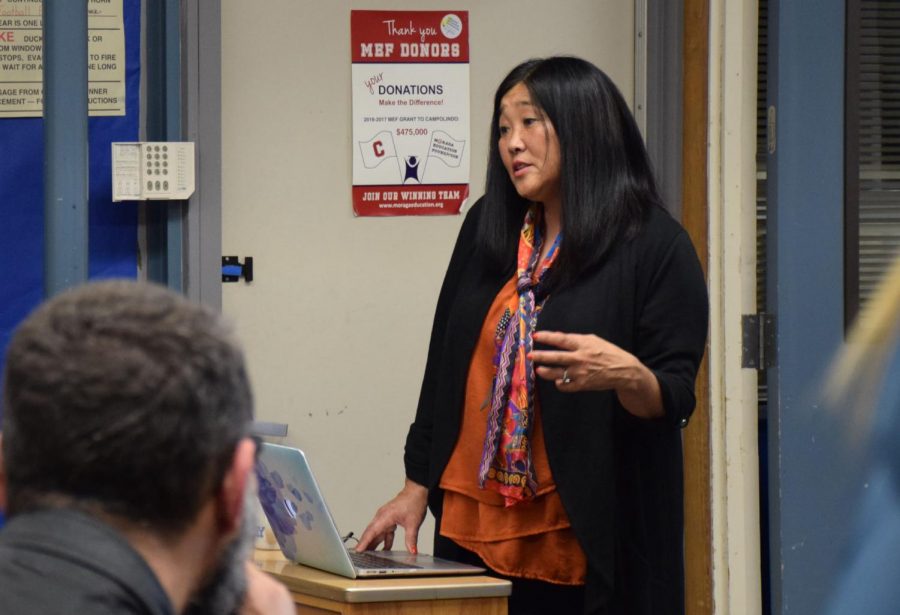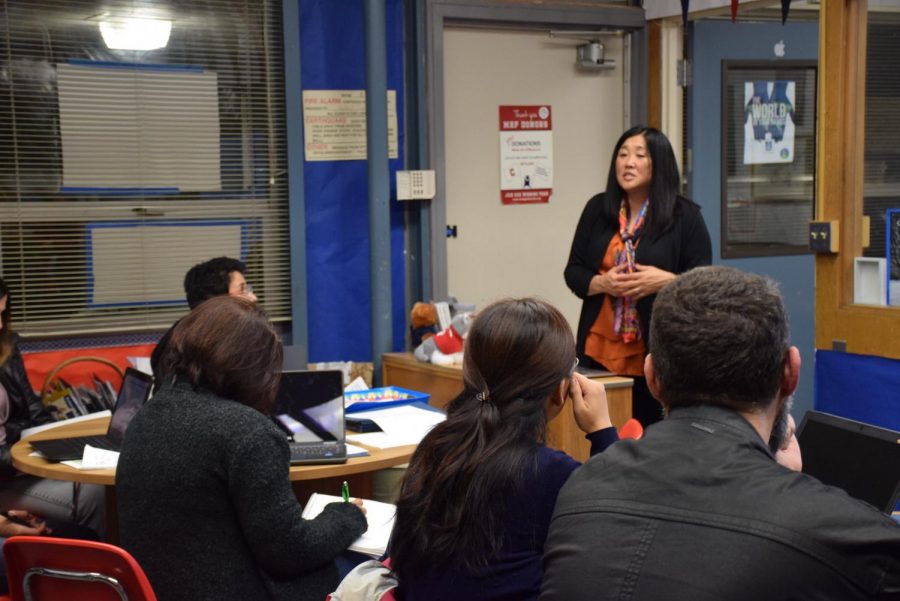Workshop Dispels College Cost Myths
December 16, 2019
In an effort help students and parents better understand the various options available for covering the costs of tuition, College & Career Counselor Joan Batcheller held a financial aid workshop on December 4.
Batcheller admits that there have been situations where students have been accepted to a college only to decline attending due to an inability to cover the expenses.
“I had one girl who got into Santa Barbara, but when her parents had to cut the check for the $36,000, her parents said ‘We don’t have the money. You’re gonna have to take out a loan.’ She goes, ‘I can’t graduate with $130,000 in debt. I just can’t,'” said Batcheller. “So she went to DVC for 2 years. She’s fine now, but it definitely was heartbreaking. Something that should never have happened that way.”
According to Batcheller, incidents like that can be avoided if family members better communicate with each other about their financial situations, and educate themselves about both the real cost of college attendance and the various ways that those costs can be handled.
“There’s a disconnect in that I think many kids don’t worry about paying for college because their parents don’t want them to worry,” said Batcheller. “Students don’t know the economics of how much money their parents bring home and they really shouldn’t, right? That’s not a priority, but that’s where the parents have a role in that, because they can’t just say, ‘Don’t worry about it’ because then you will be worrying and when the time comes to go, you don’t get to go.”
Some students feel like their parents purposely keep them in the dark about their families’ financial situations.
“I feel like me and most of my friends all have parents who don’t want to tell us about how they are going to pay for our college tuition. My mom usually just tells me that it’s none of my business to know about how much money they make and that I should really just worry about whether I can get in or not,” said sophomore Ashley Xu.
Shelly Ouyang, a parent in attendance at the workshop, is of the opinion that students should be focused on being academically eligible to attend college while parents need to be thinking about finances. “Money is definitely something teenagers shouldn’t be worrying about. It’s up to parents to make decisions about that, so parents have to be the ones to do a lot of research and planning to be sure they can pay it or at least take out a loan,” she said.
One problem is that college tuition today is far more expensive than when the parents of today’s students attend college themselves. Some parents are operating under the impression that college tuition is still the same as it was in the 90’s.
“I had a mom come in that said she saved money for all her kids for college, so I showed her College Board and she goes, ‘How much does this cost? I take it back, I didn’t save enough money for my kids,'” said Batcheller. “She just didn’t know because 5 years ago, 10 years ago, it was a lot less money and now, every year it’s going up.”
Another thing parents and students forget is that college life includes many other expenses beyond just tuition. “I had done my own research prior coming to the workshop and I knew student debt is a big problem nowadays, but I don’t think I felt so worried until Joan showed us the typed up estimates of the total that included all the additional costs of room and board and travel money,” said Ouyang.
During the workshop, Batcheller introduced parents to an online net expense calculator, a tool used to estimate the amount of fiscal aid students may receive based on their family’s economic status. “I think the more educated you can be, then the better prepared you are to understand what your situation is, so I think having a financial aid workshop just gives them the tools they need to figure out what their finances are,” said Batcheller.
Presenting parents with the proper resources to calculate their investments may be key to dispelling the naive perceptions families have about the cost of college.
“I have some kids whose parents are making them apply to schools they know they can’t even afford and hope to see they’ll get some scholarship money, but the reality is, if you do the net price calculator, you know you’re not going to get any money. Why get into school that you know you can’t afford, that you’ll never go to, and it’s a lot of work for you and it costs money to apply?” said Batcheller.


